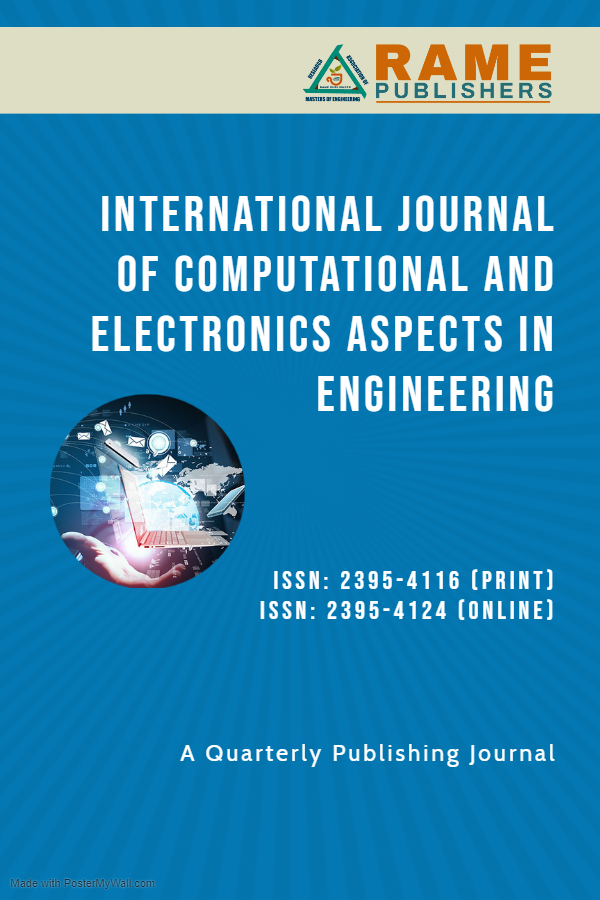An overview of sustainable e-waste management based on a case study
Narendrakumar J. Chobharkar, Rushikesh R. Choudhari, Akanksha D. Gade, Rohit S. Borade
International Journal of Computational and Electronic Aspects in Engineering
Volume 1: Issue 3, October 2020, pp 89-94
Author's Information
Narendrakumar J. Chobharkar1, Rushikesh R. Choudhari1
1BE Student, Mechanical Engineering Department, JSPM Narhe Technical Campus, Pune, India
Akanksha D. Gade1,2
Corresponding Author
1BE Student, Mechanical Engineering Department, JSPM Narhe Technical Campus, Pune, India 2Engineer, Quality Engineering Department, Aim Precision Private Limited, Pune, India
akankshadattatraygade.89@gmail.com
Rohit S. Borade1,3
1BE Student, Mechanical Engineering Department, JSPM Narhe Technical Campus, Pune, India 3Engineer, Quality Engineering Department, Yazaki Private Limited, Pune, India
Abstract:-
It is established that the e-waste comprised of personal computers, air conditioners, refrigerators, fluorescent lamps and old telephones handsets. Such discarded equipment is found to contain useful metals such as iron, copper and aluminium as well as ecological contaminants such as lead and mercury. The huge amounts of waste from electrical and electronic equipment (WEEE) have made it very urgent to make such systems that can guarantee selective collection and legal treatment of such electronic waste. But, in some countries now and today also not having legislation or yet not devised a waste management system to comply with the law. Our country India today working on it for better waste managements. In some status dumping yards are developed for waste management. On daily basic local recycling companies who can get benefits from these materials for doing management of waste.Index Terms:-
E-waste; EEEs; Management; Recycle; Environment; SustainableREFERENCES
-
E-Waste Management. Case Study: E-Waste in India. E-Waste Management. Cited on 19th April, 2021.
Online -
NDTV. How to make e-waste recycling commercially viable, government looks at options. NDTV. Cited on 19th April, 2021.
Online -
Haikal Ismail, Marlia M. Hanafiah. “A review of sustainable e-waste generation and management: Present and future perspectives”, Journal of Environmental Management, 264, 2020.
Crossref -
Balde, C.P., Forti, V., Gray, V., Kuehr, R., Stegmann, P, “The global e-waste monitor – 2017. United Nations University (UNU)”, International Telecommunication Union (ITU) and International Solid Waste Association (ISWA), Bonn/Geneva/Vienna, 2017.
Online -
E-waste sector will create half million jobs in India by 2025: IFC. The Economic Times. Cited on 21st April, 2021.
Online -
Credibly. 5 reasons why e-waste management is a must for small businesses - and what you can do about it. Credibly. Cited on 21st April, 2021.
Online -
Ignatio Madanhire, Kumbi Mugwindiri and Charles Mbohwa, “Evaluating the feasibility of effective E Waste management: Case Study”, Proceedings of the International Conference on Industrial Engineering and Operations Management, Dubai, UAE, 2020, 2824-2834.
Google Scholar
To view full paper, Download here
To View Full Paper
For authors
Author's guidelines Publication Ethics Publication Policies Artical Processing Charges Call for paper Frequently Asked Questions(FAQS) View All Volumes and IssuesPublishing with




